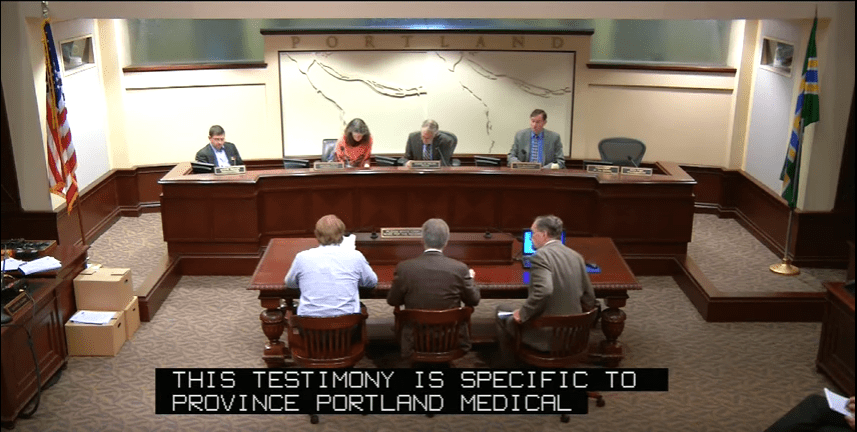
The housing affordability crisis has reached record levels in American cities. According to the Joint Center for Housing Studies, about half of the renters in the U.S. are cost-burdened (paying over 30% of their income for housing) and one in four are severely cost-burdened (paying over 50% of their income for housing) in 2014.
Part of the problem is that local government requires housing development to over-build off-street parking. As a result, most Americans pay for parking as part of their rent regardless if they need a parking space. Policy experts and housing/transportation advocates have argued that parking requirements should be eliminated or reduced as this arbitrary regulation has made housing more unaffordable by (1) imposing substantial development costs that get passed onto tenants; and (2) reducing overall housing supply by limiting density.
The Hidden Cost of Bundled Parking
To answer the question: What are the effects of on-site garage parking on housing costs in American cities? A recent study by Gregory Pierce and C.J. Gabbe found that renters living in metropolitan areas pay approximately $1,700 per year or 17% of a unit’s rent for the bundling of a garage space with housing. Moreover, the authors estimate that there are about 708,000 urban carless renter households with a garage parking space. Altogether, these households pay $440 million a year for bundled garage parking; that is $36 million more than the amount of federal money the State of Oregon spends on rental assistance in 2016.

Using data from the American Housing Survey, Pierce and Gabbe concluded that 71% of carless renters live in a housing unit with bundled garage parking and they pay an average of $621 a year or a 13 percent premium on their rent for parking they do not use. This raises a serious equity issue since carless and renter households are much more likely to be lower-income than their counterparts (households with car- and/or home-ownership). Indeed, the study finds that the average income for carless households with a garage space is about $24,000 compared to $44,000 for other households. Because bundled parking forces poor carless renters to pay for a luxury they do not need, it inevitably makes it more difficult to save money to meet other basic needs such as education, healthcare, or better living conditions.
The study argues that when developers are required to provide parking on-site, they have little or no incentive to unbundle parking costs from rent because there would be an oversupply of parking spaces. Thus, the authors recommend that cities reform parking regulations to either eliminate or reduce parking requirements for housing development and enable developers to charge parking separately from rent.
Parking Stalls Housing Affordability in Portland
The study explores parking’s effects on rents at the national level but the policy implications are very relevant to Portland. According to the Portland Housing Bureau, more than half of Portland renters are cost-burdened, spending more than 30% of their income on rent. At the same time, only 59% of renters drive to work. But parking minimums have not only raised rents but also stopped affordable units from being built since 2013, and efforts to increase affordability are currently stalled by parking in Southeast Portland.
In February 2017, the new Inclusionary Housing rules went into effect in Portland, allowing housing projects near frequent transit to apply for a waiver for parking requirements. The Urban Development Group (UDG) filed an early assistance request for three proposed residential projects in Sellwood. The proposal, if approved, would provide 40 affordable housing units and 170 market rate units in exchange for waiving a total of 46 parking spaces that the projects are required to provide.
Despite the need for more affordable housing units in walkable and transit-friendly neighborhoods, the Bureau of Development Services (BDS) thinks that one of the projects provide on-site parking spaces as required by the City’s Development Standards because it is not located within 500 feet from a transit street with 20-minute peak hour service. If BDS refuses to interpret the Code and transit service standards more favorably grant a variance (which can be appealed by the neighborhood slows/kills the project), Sellwood will lose the opportunity to gain 40 affordable units and get 46 private parking spaces instead. It will also set an unwise precedent that will discourage future development proposals from trading parking stalls for affordable housing units.
But the impact is more than the lost opportunities to build affordable units. “By driving up the cost of development, parking requirements not only make the cost of developments that do get built more expensive (developers have to pay for the land and construction for parking, and pass these costs on in rent), but parking requirements also have the effect of reducing the amount of housing that gets built and because fewer units are built, there’s less supply, and that serves to drive up the rents on all the units in the marketplace,” said Joe Cortright, a Portland urban economist and contributor at City Observatory.
While the Inclusionary Housing ordinance was a positive step forward in parking policy reform, it did not go far enough. Allowing affordable housing projects near transit to apply for a waiver for parking requirements is good but eliminating parking requirements entirely is much more effective in supporting housing affordability. In May, Mayor Wheeler publicly said that “the debate: ‘Parking vs Housing?’ It’s really over“. But as long as Portland City Council continues to allow stealth parking subsidies in the form of parking requirements, the majority of renters will continue to be burdened by the hidden cost of parking.







